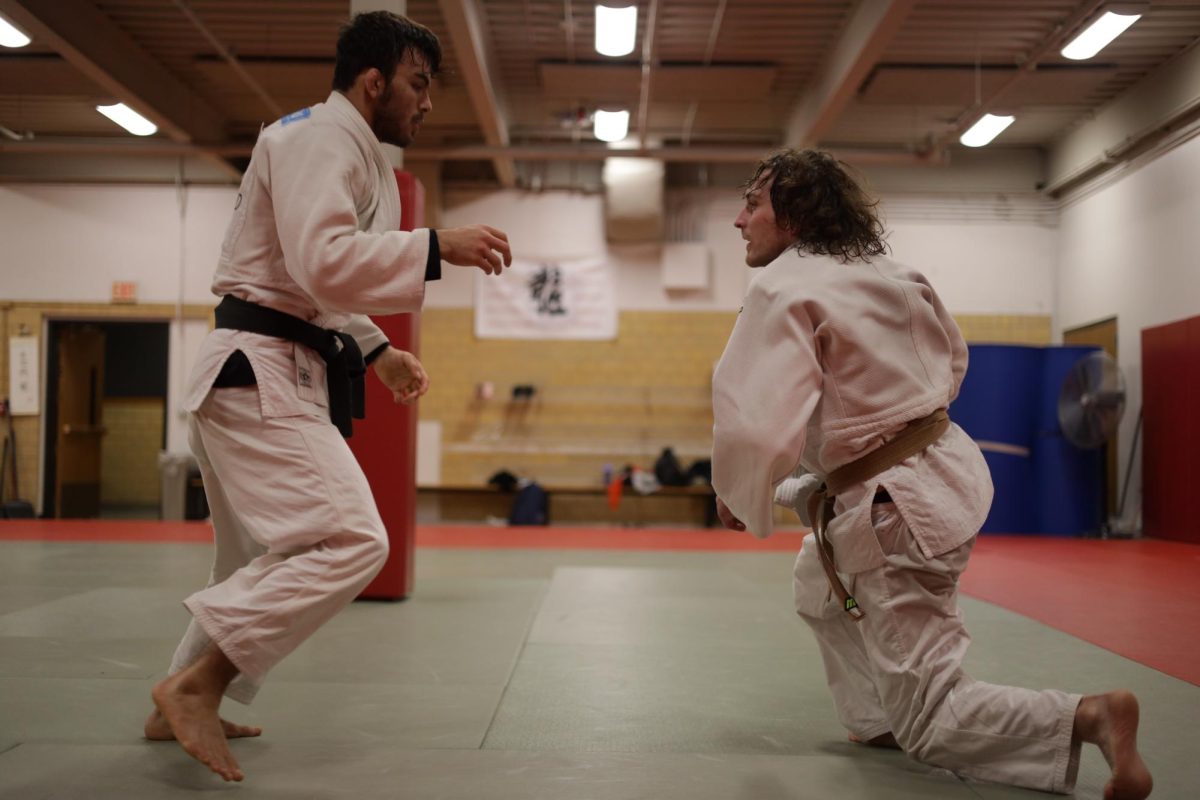Future reality of cyber-education
July 1, 1996
Last week I read that 10 Western states had recently decided to merge into an educational partnership of sorts.
This one, however, had little to do with recipricocity agreements or scarcity-of-discipline waivers like most interstate accords.
Essentially, the 10 states have decided to create a ‘groundless, paperless’ university. A ‘virtual university,’ if you will.
Proponents claim that while attending class in the hallowed halls of the electronic university, students wouldn’t have to worry about commuting to school.
They wouldn’t have to worry about the dog eating their homework or pissing on their textbooks.
They wouldn’t have to worry about anything other than rolling out of bed in the morning, bad hair and serpent breath intact, ready to brew coffee, harvest eye-crust, and watch the digital professor for a few hours.
So long as a prospective student had a computer, a modem, and an idea of how to use both pieces of equipment, they could earn a degree online.
A noble goal, I say. But a naive one at that.
Officials appear to be missing the point that the students attending this country’s educational institutions don’t need better access to instruction, but simply need better instruction. One that limits distractions.
The same electronic worlds in which we fantasize about and f—k our unseen neighbors cannot possibly be expected to substitute for the real-time interaction of face-to-face teaching.
Burgeoning class sizes to the thresholds of fire capacity has never been an acceptable practice because it alienates both the class and its participants.
Assuming that virtual universities are never devoid of classroom space, how is their anonymity any different? Isn’t the lack of an identity the very thing that pours a shaky foundation on which to ground knowledge?
To me, interaction based on reflexes alone just isn’t learning. It’s more like an exercise of futility. Passing a test or scoring an A on a paper doesn’t necessarily mean that a person knows anything at all, other than that they can bulls—t reasonably well.
Until they’ve been grilled face-to-face on their discipline for more than thirty minutes at a time, I say most people probably just fake it, sliding along unchallenged.
Plagiarism, laziness, and general apathy are things that already dominate a large part of academia. Having been up and down the ropes myself, students, in my opinion, can’t be expected to really learn anything without the ‘hands-on’ (alternatively, the ‘iron-eye’) interaction of hard-ass professors.
And if anyone tries to tell me that students never contribute to the academic lives of their professors, research or otherwise, I’ve got one question to ask; “Should I laugh now or later?”
There’s no doubt that there exists a difference between getting a degree and earning a degree. Anyone can get a degree, so long as they’re willing to BS long enough. And that’s the future reality of cyber-education.
The realization that the educational world may never know who its students are is downright scary. And a marked sign of decadence. Be wary of next generation’s engineers, chemists and physicists.
Don’t trust them with your life any further than you can throw them unless they came out of an institution that is tangible enough to actually visit.
If the world is truly becoming a more and more global community, communication is vital. And as many times as I hear that learning to communicate electronically is the most important skill to learn these days, I still refuse to buy it.
I see it differently, as in, before you can communicate effectively under electronic pretenses, you need to know how to communicate to begin with. And that starts and ends with people. People ad infinitum. Period.
No matter what a ‘virtual university’ can teach a student, I sincerely doubt that its supposedly ‘efficient’ edifice can substitute for the traditional collegiate experience in any sense of the imagination. Granted, while such a university may be aimed at the average non-traditional student, I can’t agree that this makes things easier for anyone.
Affording everyone the opportunity to get a college degree in the most convenient way possible literally threatens what that degree represents — effort. And without effort, I cringe at the repercussions of what society will have to endure.
And with that, I say, feel free to keep the computers in the classroom, but don’t ever put the classroom in the computer.
David Ptak has a B.A. in philosophy from Iowa State and hails from Long Island, New York.






